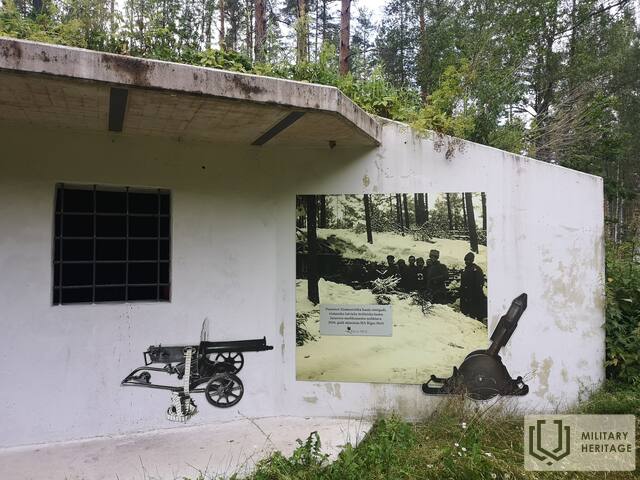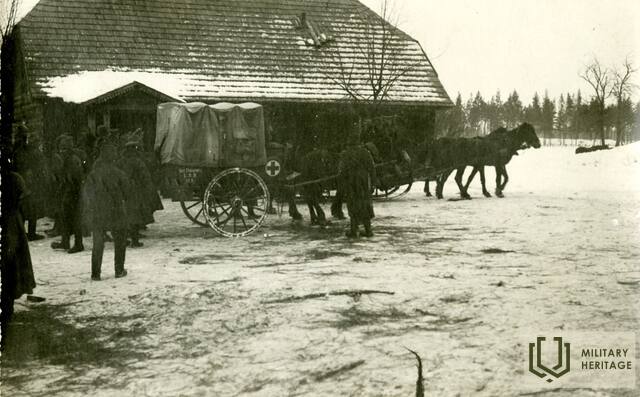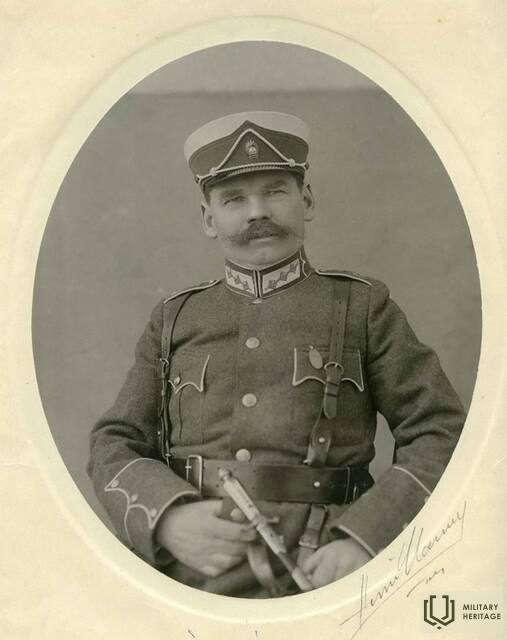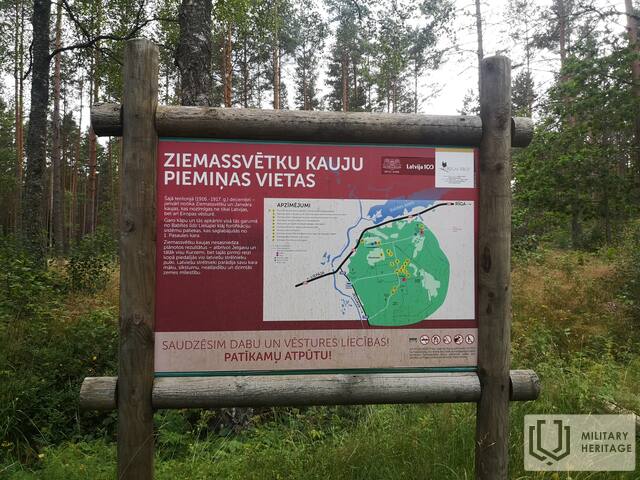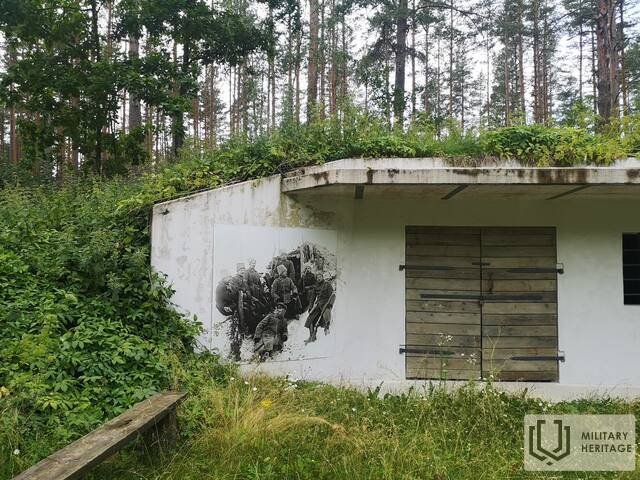Buvęs Latvijos kareivių medicinos sandėlis
Infrastruktūra

Įsikūręs Babytės rajone, netoli Antinių karių kapinių ir atnaujintų apkasų.
Pirmojo pasaulinio karo metu nuo 1915 m. šioje teritorijoje buvo įsikūrusios Rusijos imperijos armijos gynybinės pozicijos. 1917 m., per Kalėdų mūšius, šalia Antinių namo buvo įsikūręs 5-ojo Žiemgalos latvių šaulių pulko štabas ir ligoninė su vaistų sandėliu, kuriai vadovavo žymus Latvijos karo gydytojas Pēteris Snīķeris.
Kalėdinių mūšių metu Latvijos šauliai puolė Vokietijos armijos dalinius ypač atšiauriomis ir nepalankiomis sąlygomis. Mūšiuose patirti sužalojimai buvo įvairūs – šautinės žaizdos, sumušimai ir traumos, taip pat nušalimai. Laiku reikėjo suteikti medicininę pagalbą tūkstančiams Latvijos kareivių. Ji buvo organizuojama taip, kad sužeistieji kuo greičiau gautų pagalbą. Mūšio lauke dirbo neginkluoti paramedikai, teikdami pirmąją pagalbą ir išveždami sužeistuosius iš pavojingų vietų. Šalia mūšio laukų buvo įrengti tvarstymo punktai, kur buvo tęsiama priežiūra ir atliekamas triažas. Sunkiau sužeisti kareiviai vežimais ir automobiliais buvo evakuojami į ligonines ar ligonines. Šalia ligoninių buvo įkurtos kapinės, kuriose buvo laidojami nuo sužalojimų mirę asmenys.
Šiandien galite aplankyti senąjį vaistų sandėlį. Netoliese yra Antinių karių kapinės, taip pat rekonstruoti Pirmojo pasaulinio karo apkasai ir slėptuvės. Aplinka tinkama pasivaikščiojimams miške, atskleidžiant ryškius karinio paveldo įrodymus.
Panaudoti šaltiniai ir literatūra:
Bērziņš, V. Latvijos šauliai: drama ir tradicija. Ryga: Latvijos istorijos instituto leidykla, 1995.
Lismanis, J. Mūšių ir žuvusių kareivių atminimui: 1915–1920 m. Ryga: Nims, 1999.
Susijusi laiko juosta
Susijusi istorija
Apie kalėdines kovas
Kalėdų mūšiai baigėsi sausio 11 d. Latvijos šauliams trečiąją mūšio dieną pavyko užimti gerai įtvirtintą vokiečių armijos poziciją – Ložmetējkalnu. Kalėdų mūšių kaina buvo labai didelė. Šimtai Latvijos ir kitų Rusijos armijos kareivių žuvo bandydami išstumti vokiečius iš jų pozicijų. Pasakotojas vaizdžiai aprašo mūšio lauko scenas pasibaigus Kalėdų mūšiams.




